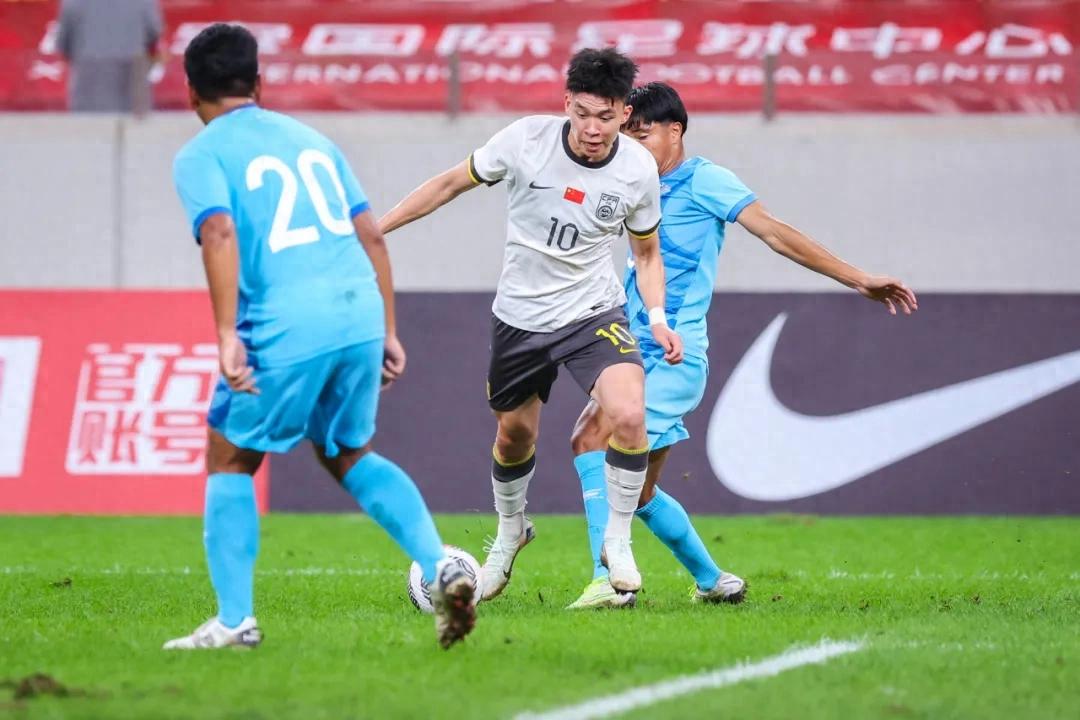
Reported by Chen Yong Recently, two significant matters in Chinese football—the U22 national team’s U23 Asian Cup qualifiers and the selection of the national team’s head coach—appear unrelated but are in fact inseparable, essentially two aspects of the national team’s rebuilding: the coach chosen is expected to lead the team straight to the 2030 World Cup, with the mission to “sustainably elevate the competitive standard of the men’s national football team and its FIFA ranking, accomplishing the goal of qualifying for the 2030 World Cup.” According to this objective, the U23 Asian Cup qualifiers select the national team players, so fundamentally, both events are part of the national team’s reconstruction. It is believed that every coach competing for the national team head coach position will closely watch the performances of players in the U23 Asian Cup qualifiers, especially the September 9 match against Australia, which determines whether the U22 national team advances to the main U23 Asian Cup and serves as the most authentic test for these future young national players.
The 2026 U23 Asian Cup will be the last tournament for the non-Olympic age group; in the future, the AFC will only hold U23 Asian Cups for the Olympic age group, which will also serve as the Asian qualifiers for the Olympic Games. From a purely competition standpoint, qualifying for the U23 Asian Cup is a necessary task, but achieving this only provides better training opportunities and does not grant access to world-level tournaments like the U20 or U17 Asian Cups do.
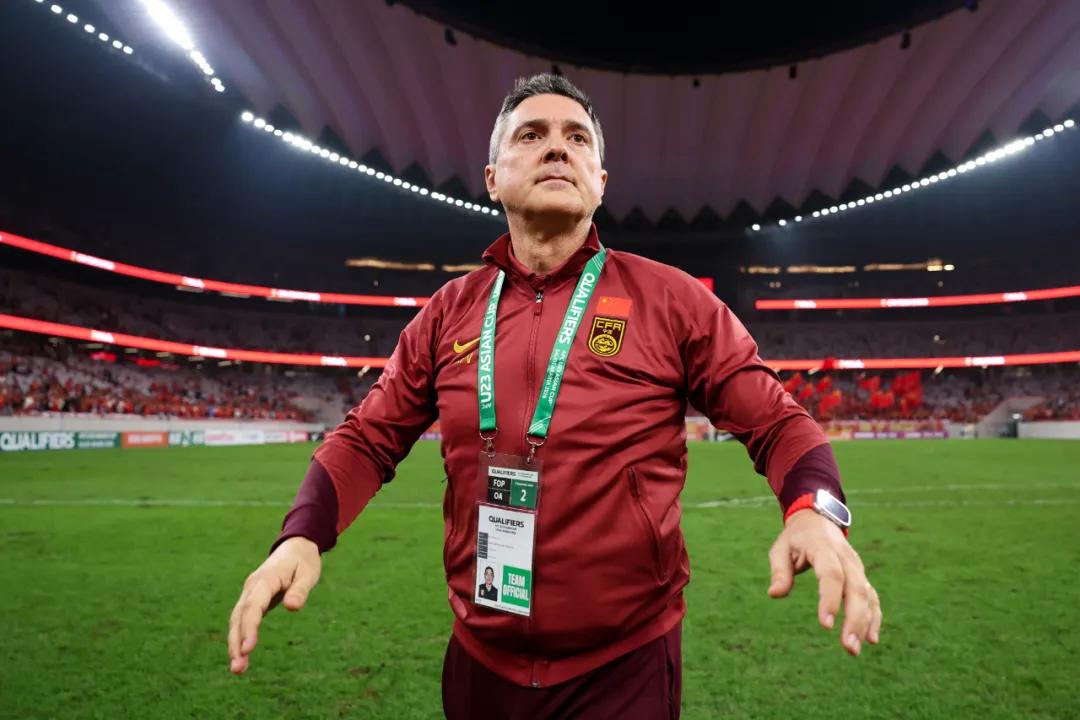
The U22 national team participating in this U23 Asian Cup is highly valued because the vast majority of its players are regular starters in the league, and notably, nine of them are either current national team members or part of the national training squad. These include Wang Yudong, Hu Hetao, and Bai Helamu, who played in the final 18 squad, as well as Kuai Jiwen, Wumitijiang, Wang Shiqin, Yu Jinyong, Liu Haofan, and Xu Bin, who have participated in the East Asian Cup or been selected for the national training team. Additionally, Liu Chengyu, who has been on the national team, is absent from this U23 Asian Cup qualifier squad.
Taking the latest East Asian Cup roster as an example, out of 26 players, 13 were born after 2000, making up half the squad, including six players born in 2003. This count excludes Hu Hetao, who was injured at the time, and Bai Helamu, who was not selected then. Therefore, the U22 national team players are destined to form the core of the future national team.
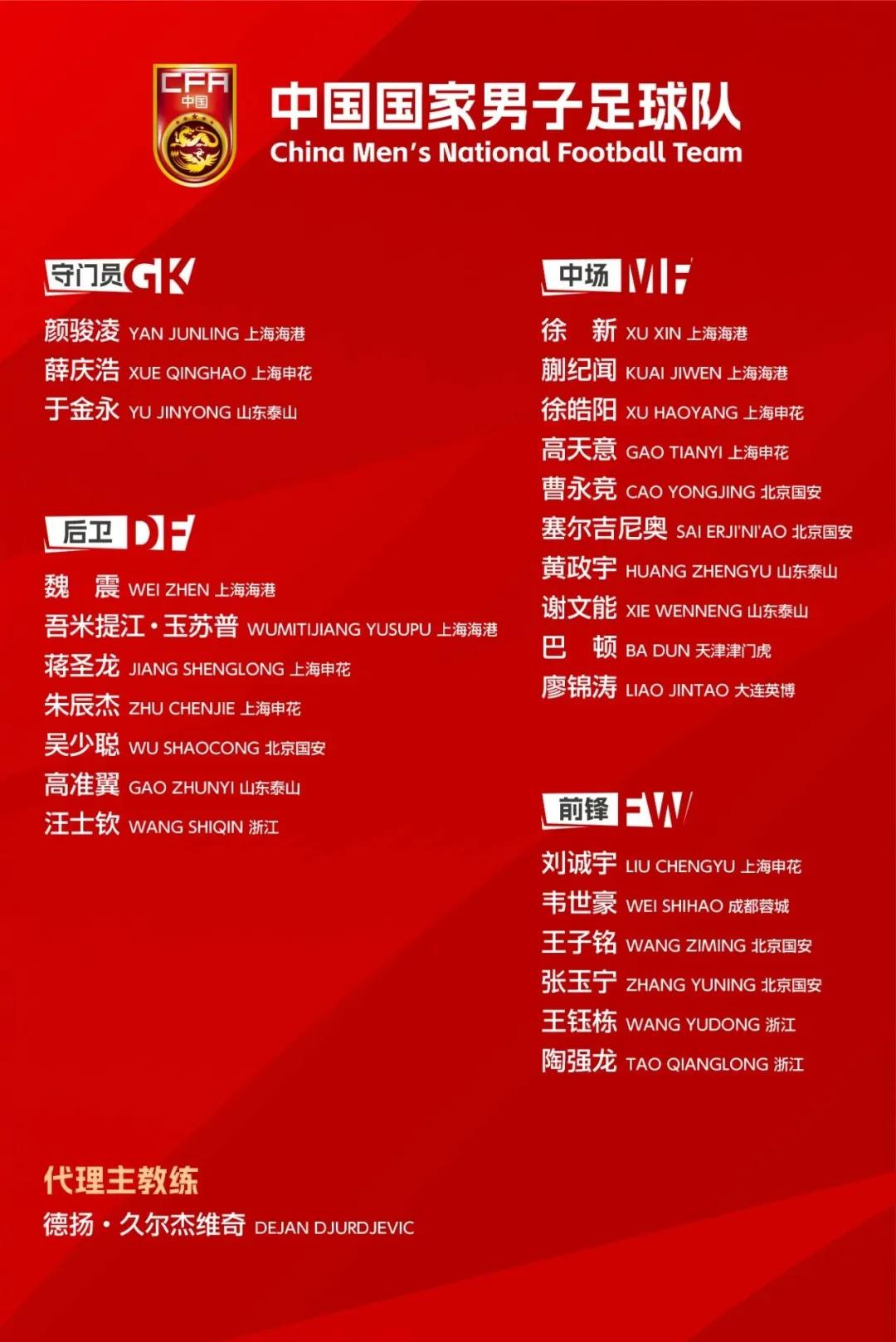
Unfortunately, the U22 national team’s performance in their first two matches was less than ideal: in the opening game against Timor-Leste, the team suffered serious issues with overall form, showing anxiety and distorted movements, missing many chances during the match; in the second game against the Northern Mariana Islands, they maintained poor form in the first half and scored only one goal near the end, but with Wang Yudong’s entry in the second half, the team was invigorated and scored nine goals in a frenzy.
The U22 national team’s early performances led to pessimistic views about the youth development prospects of the national team, but the explosive second half against the Northern Mariana Islands eased some of that negativity. Objectively, many factors caused the unusual performance of the U22 team, making the September 9 match against Australia an even more crucial opportunity for observation.
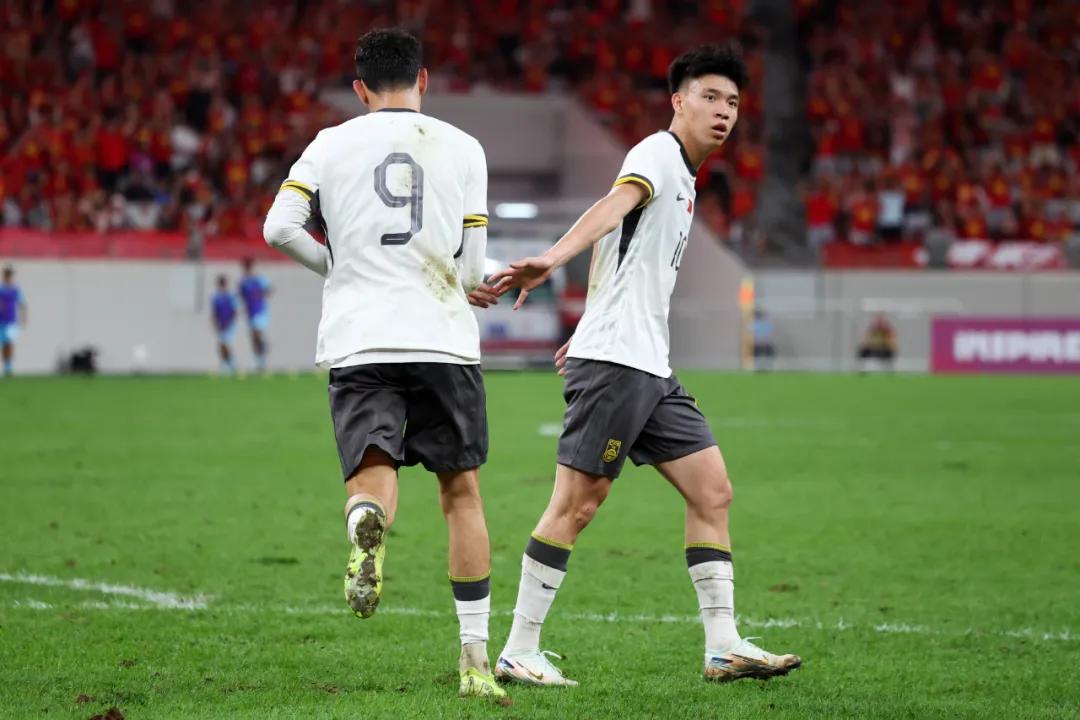
Among the players, Wang Yudong and Hu Hetao’s abilities are widely acknowledged; in fact, they have already secured their places as national team regulars. Hu Hetao’s performance in this tournament was average, mainly because he recently recovered from injury. Bai Helamu’s skills are ordinary, but he can play a unique role, having scored the first goals for the U22 team in both matches. The abilities of players like Kuai Jiwen, Wumitijiang, Wang Shiqin, and Liu Haofan need to be further stimulated in such high-level contests. Several players born in 2005, such as Peng Xiao, Mao Weijie, and Zhu Pengyu, also need to catch up promptly.
With the previous World Cup cycle for Chinese football concluding in June this year, the current national team is in a rebuilding phase, simultaneously selecting coaches and players. The U23 Asian Cup qualifiers are an important part of the latter. It seems we already have a core player in Wang Yudong, but this is far from enough; to achieve the goal of competing in the 2030 World Cup, more young talents must emerge.
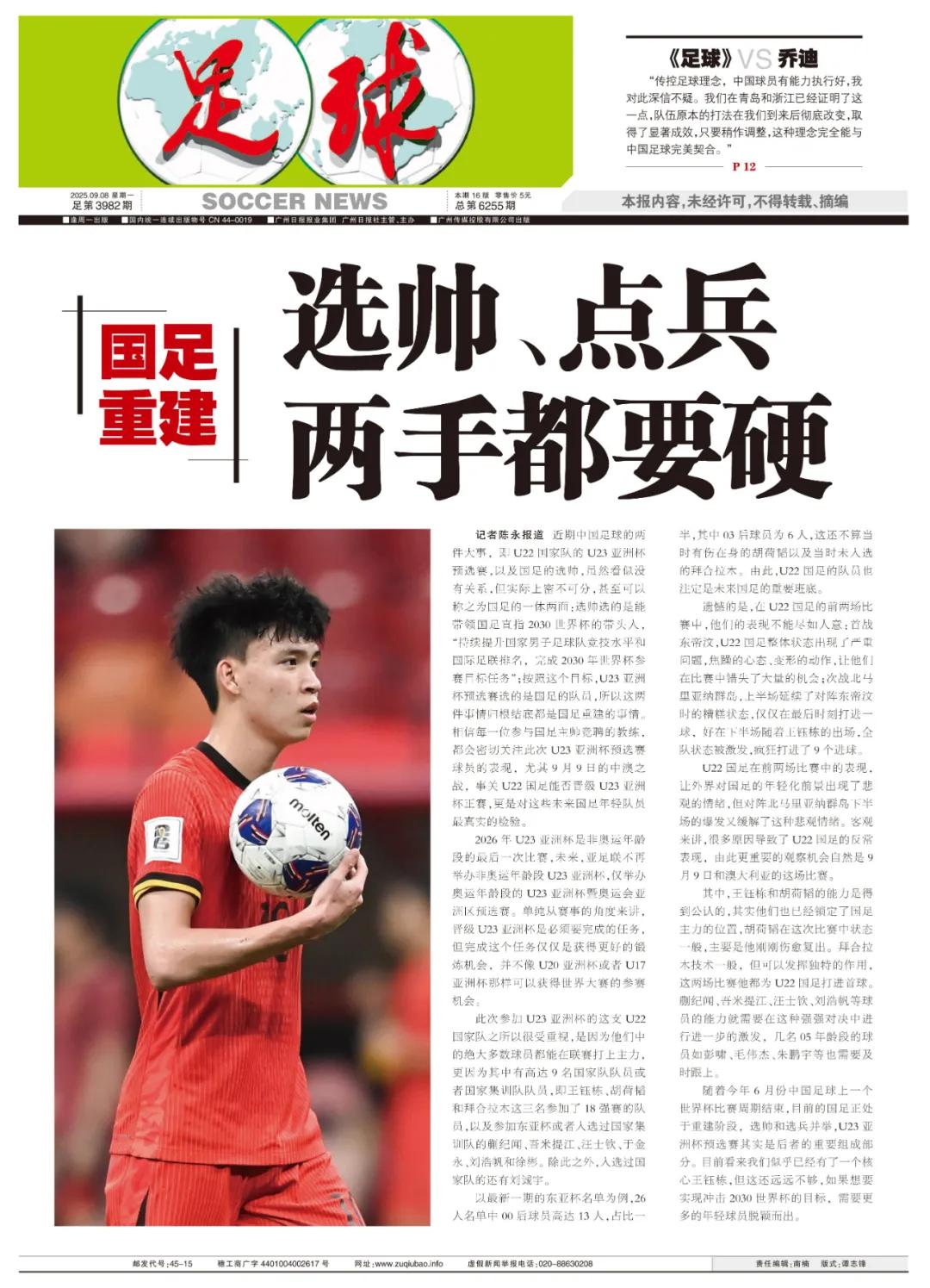




















 Links
Links
 Contact
Contact
 App
App


